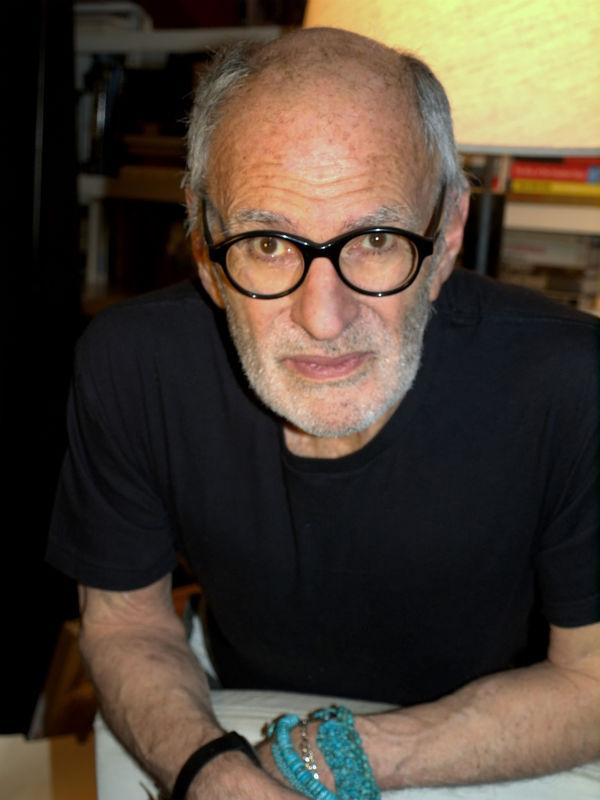Art Talk with Larry Kramer

When The Normal Heart debuted at New York's Public Theater in 1985, playwright, author, and activist Larry Kramer was an angry man. Roughly 13,000 Americans had already died of AIDS—including many of his friends—yet little funding had been appropriated by the federal or local governments for research, education, treatment, or social services. In fact, many people weren’t talking about the epidemic at all. Kramer used his anger to start the Gay Men’s Health Crisis (GMHC) in 1981, later dramatizing this experience in The Normal Heart. Largely autobiographical, the play centers on Ned Weeks (Kramer's alter ego) at the onset of the AIDS outbreak, chronicling his sorrow and frustration as he battles with bureaucrats, journalists, and even members of the gay community to do more, and do it quickly. Kramer has remained an outspoken advocate for public health and LGBTQ rights, propeling the formation of the AIDS Coalition to Unleash Power (ACT UP) in 1987, and establishing the Larry Kramer Initiative for Lesbian and Gay Studies at Yale University, which ran for five years.
Last month, HBO released the film version of The Normal Heart, written by Kramer and directed by Ryan Murphy of Glee fame. We spoke with Kramer by e-mail about the genesis of The Normal Heart, the transition from stage to screen, and why he is still an angry man.
NEA: So much of the early 80s was spent trying to get people to pay attention to AIDS, largely unsuccessfully. But people paid attention to The Normal Heart. Do you think putting your message onto the stage changed its efficacy?
LARRY KRAMER: Of course. The more people who see it, the more the message gets out. That doesn’t mean they do anything about what they have heard.
NEA: Obviously AIDS is a disease of total devastation. And yet, it has been the basis of so much incredible art. Can you talk about finding creative inspiration from destruction?
KRAMER: A writer finds “creative inspiration” in many places. And most of us don’t know where from in us anything comes! The story, the characters who lived it, propel you forward, if you are lucky.
NEA: Can you talk about the effect of AIDS on the cultural world?
KRAMER: A lot of great stuff and still the plague gets worse by the day. So much for “the cultural world.” The answer is self-evident anyway. A lot of great artists died. So what else is new.
NEA: Was there any element of catharsis when writing The Normal Heart?
KRAMER: No. None. Absolutely none. Anyway, I don’t believe in catharsis from creative. If you’re any good, your work, what you are trying to say, becomes almost a genetic part of you that you don’t lose. I don’t want catharsis. I want continuing anger!
NEA: I know you worked very hard to get The Normal Heart onto the screen and had a number of false starts. What clicked with your collaboration with Ryan Murphy?
KRAMER: He loved the play hugely from the get go, and we found we shared the same vision and very much enjoyed the back-and-forth bouncing ideas off of each other. I was very lucky to work with him.
NEA: What were your considerations when adapting the play for the screen? Were there any aspects that you thought worked better in one medium or the other?
KRAMER: Each is what it is. I have written in all forms—novels, plays, movies, essays—and I would have done this as a movie originally if someone had come along. Plays are much harder for me to write. I don’t find all that all that much difference between the movie and the play, though many seem to have. The characters are the same and their story is the same. They just have more room to move around in now!
NEA: This movie now is going to be seen by a generation who doesn’t remember the initial terror of the AIDS outbreak. What do you hope they take away from the film?
KRAMER: So far, over 4.5 million people have watched the movie and the worldwide release is just starting. HBO expects this number to double. That’s a lot of people watching and listening. Someone in this number will take away the message, if only by their friends to watch it. I have no hopes for anyone doing anything. The plague has gone too far to see anything hopeful in it or from it. Anyway, it’s too early to tell what might emerge. Obama did call Ryan the other day to tell him how much he loved the movie. That’s something.




